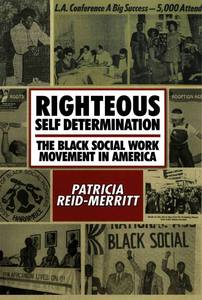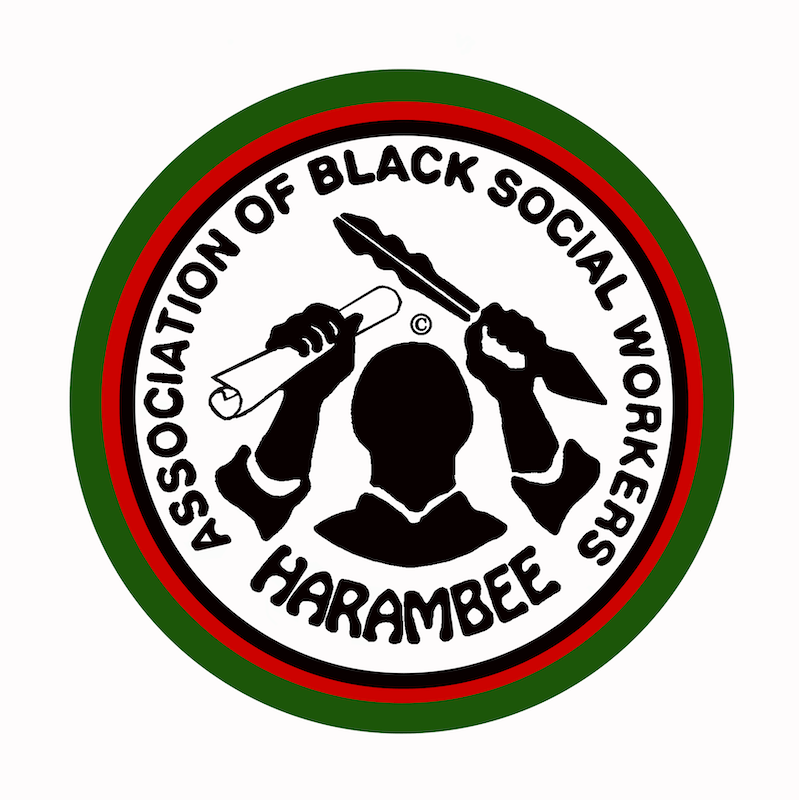
The Early Years of NABSW
NABSW was created during the 1960’s Civil Rights Movement on May 29, 1968 in San Francisco, California by a group of Black Social Workers who were convened for the National Conference on Social Welfare, the largest professional social work organization at the time. This group of Black Social Workers disengaged from that meeting to form what has ultimately become the foremost advocacy group established to address social issues and concerns of the Black community. Those Black Social Workers ultimately became the founders of the National Association of Black Social Workers.
Before May 29, 1968, several social work related advocacy groups comprised of people of African ancestry had been addressing issues of racism and poverty in America. Their common goal was Black liberation, racial equity and self-determination and improved social work practice and service delivery. They recognized the need for educational institutions to revamp curricula to more effectively educate and inform ethical and culturally competent practice.
This coalition of human service practitioners of African ancestry brought together various disciplines, both degreed and non-degreed. Through the National Association of Black Social Workers, Inc., people of African ancestry had an opportunity to unify in combating racism and white supremacy in the social welfare system. This new organization immediately articulated demands for change within the existing welfare structure, and at the same time placed emphasis upon expanding and strengthening the NABSW network through local chapter development. The years 1968 and 1969 saw demands for change made upon traditional local and national Eurocentric focused human services and social welfare systems.
National Conference
At its 1968 and 1969 national conferences, NABSW presented the National Conference on Social Welfare a position statement. This document became the first position statement of NABSW. In 1969, it was also presented to the Delegate Assembly of the National Association of Social Workers. As a result of the pressure felt by the united presence and influence of NABSW, both organizations, and the Council on Social Work Education made some changes that included, but were not limited to, increasing the number of people of African ancestry who served on committees and held various offices within these organizations. Additionally, substantive efforts were also made by these organizations to address the existence of white supremacy and racism. NABSW, recognizing white racism as a white problem to be addressed by whites, advisedly redirected its energies to the accountability of social welfare systems in Black communities, and developing service delivery strategies that reflected the Black experience.
Since 1969, NABSW has sponsored annual National conferences that address issues of social work service delivery, education, research, and alternative ideas of improving communities in America for people of African ancestry. Beginning with the 1979 National Conference in St. Louis, Missouri, NABSW has provided the host chapter with an opportunity to address local inequities. This social action component has supported the efforts of local chapters and kept NABSW on the cutting edge of social issues and advocacy. Cenie "Jomo” Williams, Jr., the first National President, spearheaded much of the early activity. Brother Williams was appointed as the organization's first Executive Director (1974-1982). He began the organization of NABSW chapters in the United States, South America, the Caribbean, and Canada.
In 1981, Dr. Morris F.X. Jeff, Jr. developed the Harambee Closing Ceremony for the annual conference in honor of our African culture and our brothers and sisters throughout the African Diaspora. Harambee is a Kiswahili word that translates as "pulling together” or "we all pull together.” In 1993, this closing ceremony was renamed the Morris F.X. Jeff Harambee Ceremony to honor his legacy and immeasurable contributions to NABSW. The establishment of NABSW's Office of Student Affairs exemplifies the importance and value of developing young professionals. This office, which is managed by students and financially supported by NABSW, is concerned with the recruitment and retention of students and faculty of African ancestry. NABSW scholarships are available to NABSW student members through the Office of Student Affairs.
Notable Publications
NABSW publications have included The Black Caucus Journal, and the National Newsletter. Respectively, they were published bi-annually and quarterly. Each publication reflected the historical development of the organization, practice issues within human services, social welfare and juvenile justice systems, and other systems that impact the client, community, staff, educator, and policy maker.
Nationally and internationally, NABSW has consistently supported efforts of people of African ancestry. Our 1972 position statement on transracial adoption was clear evidence of attempts for Black Family Preservation. This position statement challenged agency practices and served to change procedures that discriminated against African American prospective adoptive families seeking to adopt. Furthermore, the position fostered a movement that continues today, whereby agencies aggressively develop effective and ongoing adoptive parent recruitment procedures for African American children.

In April 2002, NABSW Founders and other child welfare experts developed a Welfare Reform position paper. In collaboration with the National Center on Permanency for Righteous Self Determination by Dr. Patricia Reid-MerrittAfrican American Children, NABSW's Robert L. Little Kinship Care Roundtable published a Kinship Care position paper (October 2002). Additional NABSW position papers include Preserving Families of African Ancestry (January 2003) and Domestic Violence in the African American Community (October 2002).During the administration of the 10th National President, Dr. Gloria Batiste-Roberts, two books were commissioned, Righteous Self Determination The Black Social Work Movement in America. The first book published by NABSW was The Healing Power of the Circle (March 2008) edited by Dr. Rhonda Wells-Wilbon and co-edited by Dr. Cheryl Davenport Dozier and Righteous Self Determination The Black Social Work Movement in America (April 2010) written by Dr. Patricia Reid-Merritt, published by Black Classic Press.
Recognition
Recognition of NABSW's interconnectedness to people of the African Diaspora was emphasized in 1975 with the convening of the annual International Education Conference. International Education Conferences have been held throughout the continent of Africa, the Caribbean, and in North, Central, South America and Europe. Subsequently, NABSW has established chapters and affiliates in Canada, the Caribbean, Ghana, and South Africa. In August 2003 and 2013 NABSW held its 29th & 37th International Education Conferences in Cuba, visiting Santiago and Havana.
In December 2000, NABSW was a key co-sponsor of the State of the Black World Conference in Atlanta, Georgia. NABSW collaborated with Congressman Danny Davis (Illinois), and a Congressional sub-committee to host a Congressional Town Hall meeting in January 2002 that focused on the overrepresentation of children of color in the child welfare system (Corpus Christi, Texas). NABSW activities also include participation in efforts to secure reparations for people of African ancestry; overrepresentation of African American children in child welfare and juvenile justice systems; health and wellness of African Americans; voter education, and numerous advocacy efforts at the local chapter level and regional and the national level.
